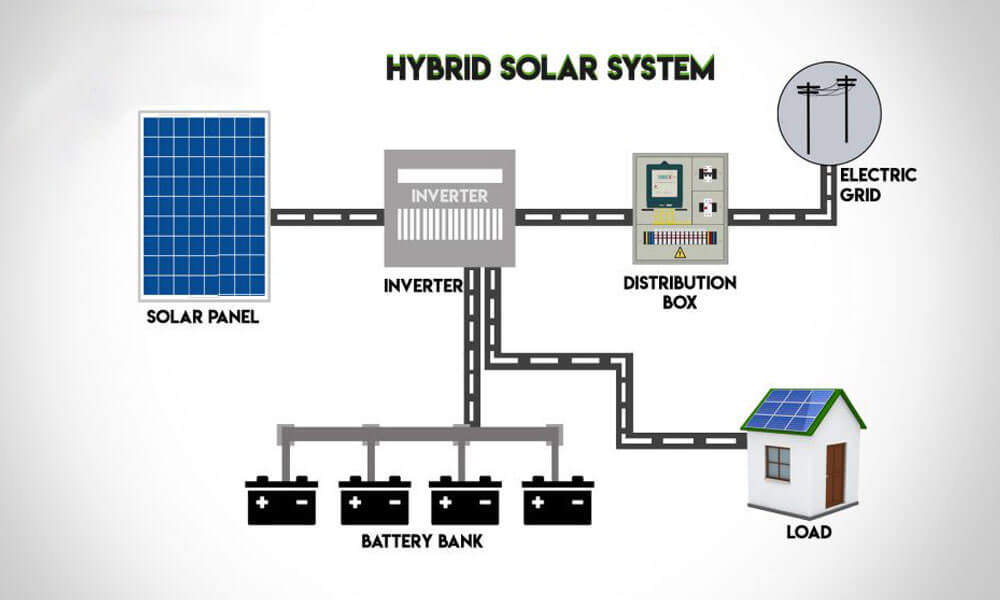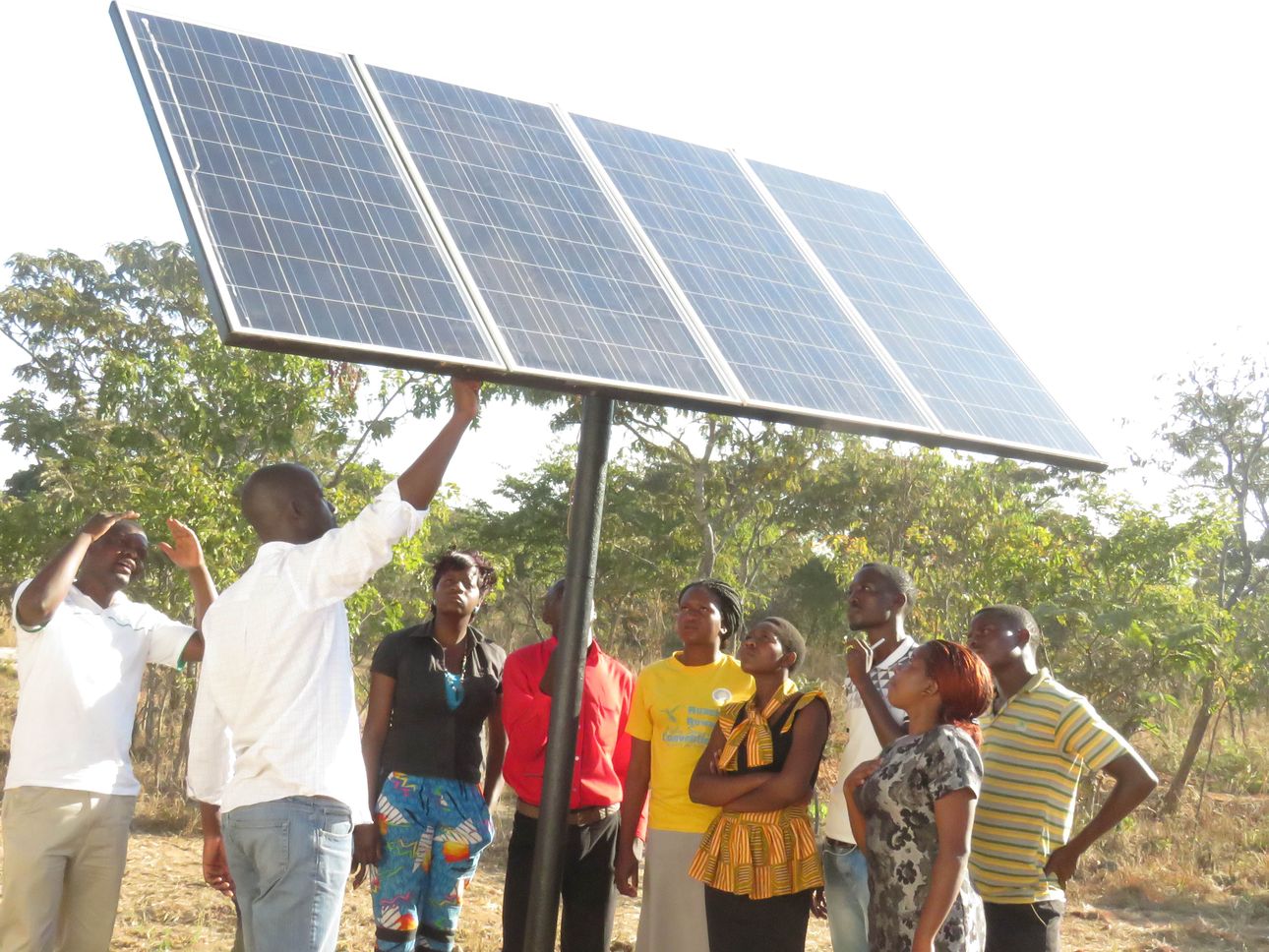Introduction
Access to dependable energy is a major problem in a lot of rural and off-grid communities around the world. Hybrid energy systems that combine biomass and solar power present an inventive and ecological alternative in Ghana, where rates of electrification in rural regions are still low. In addition to promoting socioeconomic development and environmental protection, these systems may deliver dependable power. This blog will examine the potential benefits of hybrid solar-biomass systems for off-grid populations in Ghana as well as future research directions that show promise.
The Promise of Hybrid Solar-Biomass Systems
Hybrid energy systems combine two or more sources of energy to improve efficiency and reliability. In the case of solar and biomass, solar panels harness energy from the sun during the day, while biomass, sourced from organic materials like agricultural waste or wood, generates power when sunlight is unavailable. The integration of these two systems provides consistent energy access, addressing the shortcomings of relying solely on solar power or traditional biomass.
This hybrid approach offers several key advantages, particularly for off-grid communities:
1. 24/7 Energy Access: Solar energy is abundant but only available during daylight hours. Biomass energy, on the other hand, can provide power after dark or during cloudy periods, ensuring constant energy access.
2. Local Energy Production: Both solar and biomass are renewable energy sources that can be locally harvested, reducing the need for importing fuels or extending power grids.
3. Economic and Environmental Benefits: By utilizing agricultural waste and other biomass resources, these systems also promote waste management and create new economic opportunities for local communities.
 |
| A diagram illustrating how hybrid solar-biomass systems work. |
Cost-Benefit Analysis: Hybrid Systems vs. Grid Extension
One of the primary questions surrounding the implementation of hybrid solar-biomass systems is how they compare to traditional grid extension in terms of cost. Extending the national grid to remote and rural communities can be prohibitively expensive, particularly in areas with difficult terrain or sparse populations. In contrast, hybrid systems can be more cost-effective and quicker to deploy, offering immediate benefits.
Research suggests that the initial capital costs for hybrid solar-biomass systems may be higher than extending the grid, but these systems offer lower operating costs and long-term benefits due to the availability of free or low-cost biomass sources. Moreover, the ability to scale and tailor systems to specific community needs can make hybrid energy solutions more adaptable and sustainable over time.
Optimizing Hybrid Systems for Different Regions in Ghana
Ghana’s diverse geography means that a one-size-fits-all solution may not be appropriate for all regions. For instance, in the savannah regions, where there is abundant sunlight and agricultural waste, a hybrid system that emphasizes solar with supplemental biomass might be optimal. On the other hand, in forested areas with abundant biomass but less sunlight, biomass could play a more prominent role in the energy mix.
Optimization of these systems can be achieved through advanced mode ling and simulations to predict the energy needs and available resources for specific regions. This approach ensures that the systems are tailored to each community’s environmental and economic conditions, maximizing efficiency and minimizing waste.
 |
| Renewable Energy map of Ghana |
Environmental Impacts and Sustainability of Biomass Sources
While biomass energy is often considered renewable, its sustainability depends on the type of biomass used and how it is sourced. In Ghana, the use of agricultural waste (such as rice husks, palm oil residues, and wood chips) presents an environmentally friendly option. These materials would otherwise be discarded, contributing to pollution and greenhouse gas emissions. By converting them into energy, hybrid systems promote a circular economy and reduce the environmental footprint of waste.
However, unsustainable biomass harvesting, particularly from forests, can lead to deforestation, loss of biodiversity, and carbon emissions. To mitigate these risks, proper management of biomass resources is essential. Research into sustainable biomass supply chains, coupled with regulatory frameworks that promote the responsible sourcing of biomass, will be crucial for ensuring the long-term viability of hybrid solar-biomass systems.
Key Research Areas for Hybrid Solar-Biomass Systems
To ensure the success of hybrid solar-biomass systems in Ghana, there are several potential research areas worth exploring:
1. Cost-Benefit Analysis: Conduct detailed studies comparing the long-term financial benefits of hybrid systems versus grid extension, taking into account installation, maintenance, and fuel costs.
2. System Optimization: Investigate optimization techniques for hybrid systems, ensuring they are tailored to different geographical regions and communities across Ghana.
3. Sustainable Biomass Sources: Explore the environmental impacts of various biomass sources, ensuring sustainable and renewable supply chains.
4. Community Engagement and Education: Investigate methods to involve local communities in the management and operation of hybrid systems, providing training on maintenance and fostering local ownership.
These areas of research will help pave the way for more efficient, sustainable, and scalable hybrid energy systems that can transform off-grid communities in Ghana.
Conclusion: A Bright Future for Hybrid Solar-Biomass Systems
Off-grid communities in Ghana have a viable answer to their energy problems in the form of hybrid solar-biomass systems. These systems can produce dependable, reasonably priced, and environmentally friendly electricity by fusing locally obtained biomass with the sun's renewable energy. Hybrid energy systems have the potential to greatly enhance the quality of life in rural areas by assisting them in achieving energy independence while minimising environmental consequences, provided that research into cost optimisation, sustainability, and system efficiency is conducted.
 |
| A hopeful image of a rural community with solar panels and a biomass energy plant. |
References:
1. Hansen, U., et al. (2019). "Solar-Biomass Hybrid Energy Systems: Opportunities for Rural Electrification in Sub-Saharan Africa." Renewable and Sustainable Energy Reviews.
2. Mensah, P. (2020). "Renewable Energy in Ghana: Challenges and Opportunities for Solar and Biomass Integration." Journal of Renewable Energy.
3. Awudu, I., & Swaray, R. (2021). "The Economic Feasibility of Hybrid Solar-Biomass Systems in Rural Ghana." Energy Policy.




2 Comments
Interesting insights
ReplyDeleteVery insightful
ReplyDelete